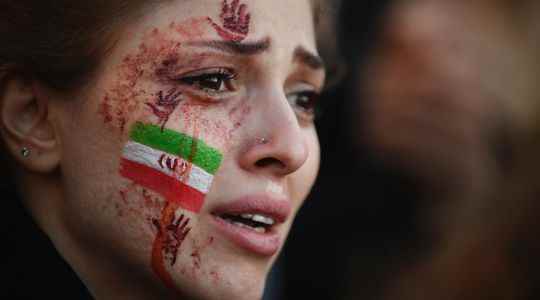Among Iran’s neighbours, facing the cameras, the uprising in Tehran does not exist: no prince of Arabia, no emir of the Gulf dares to evoke in public these demonstrations which, for a month, have shaken their worst enemy . Since the death of Mahsa Amini on September 16, this young Kurd killed for an ill-fitting veil, demonstrations have spread to all strata of Iran. After a mainly feminist revolt, it is now students, high school students, teachers and even some workers who take to the streets against power. The Islamic Republic, militarized and ready to do anything to stay in place, does not seem about to fall. But, in Iran, a flame of freedom has ignited and it worries as much as it delights certain countries of the region.
In Lebanon, Turkey, northern Syria or even Afghanistan, women marched in support of Iranian women. By the thousands, they cut their hair while singing “Women, Life, Freedom”, the slogan of the revolt in Tehran. A priori, not enough to destabilize the powers in place, but enough to create a feeling of deja vu. “In 2009, during the monster demonstrations of the green movement in Iran, this same embarrassed silence reigned throughout the Arab world, underlines David Khalfa, researcher at the Jean-Jaurès Foundation. As the Arab springs of 2011 had been, in one direction, the continuation of the green movement of 2009, Iranians can once again inspire the Arab world Even if the contexts and the problems differ from one country to another, the majority of the populations of the Middle East are under 25 years old , young people communicate on Instagram and see what is happening in Iran. It gives them ideas…” Since the Arab Spring, the leaders of the region have known how much anger is a contagious virus.
In this particularly unstable region, the risk is real. Since 2019, Lebanon and Iraq, to name only the most fragile, have regularly found themselves on the brink of civil war. The conflict in Ukraine has not helped the Middle East, the area most dependent on Russian and Ukrainian imports. Inflation exceeds 50% in most of the region and food prices have skyrocketed. “The trigger for regional anger could rather come from the economy, maintains Ayham Kamel. Crisis in Iran, Turkey, Egypt, Tunisia… In many countries in the region, the economic challenges are becoming increasingly difficult, with governments unable to manage them effectively.”
“These fires will multiply across the Middle East”
Leaders appear more prepared to face revolts, in particular thanks to efficient means of surveillance, but their retention in power is not guaranteed for all that. “In reality, we never really got out of the historical cycle initiated by the Arab Springs, analyzes David Khalfa. Under the authoritarian leaden screed, we feel that, in certain countries, there are interstices of revolt and that the population is grumbling. It’s unclear when it’s going to explode or in what form, but it’s clear, given the climate crisis and runaway inflation, that these fires are going to multiply across the Middle East.”
At the same time, and this is the paradox of the region, behind the scenes, Iran’s neighbors are delighted to see the regime shaken up and its influence abroad diminishing. “This movement is incredible, it shows the huge gap between Saudi Arabia’s progress towards modernity and Iran’s return to the past, savors a Saudi source. Iranians are revolting against the compulsory veil and against the morality police, two elements that no longer exist in Saudi Arabia today.” In 2022, faced with the Iran of the mullahs and their terrible repression, even Saudi Arabia can set itself up as a paragon of progress… “Iran is an agent of chaos, points out an Israeli source, not unhappy, no plus seeing your enemy weakened. If you are an armed militia and you want to destabilize a country, then Iran will be your best friend. If you are a state, Iran will be your worst enemy.”
However, no one has an interest in seeing the Middle East go up in flames. “Obviously, countries like Saudi Arabia and Israel would be delighted to see regime change in Tehran, with Iran aligned with their own interests, points out Ayham Kamel, Middle East specialist at the Eurasia Group. very likely that in the event of the fall of the regime, the new one would only be a copy of the current one, still aggressive towards these countries, not to mention the risk of chaos in Iran, which would destabilize the whole region… “Several analysts fear a Syrian-style scenario for Tehran, with a military power clinging to an armed rebellion. The worst for Iranians.
